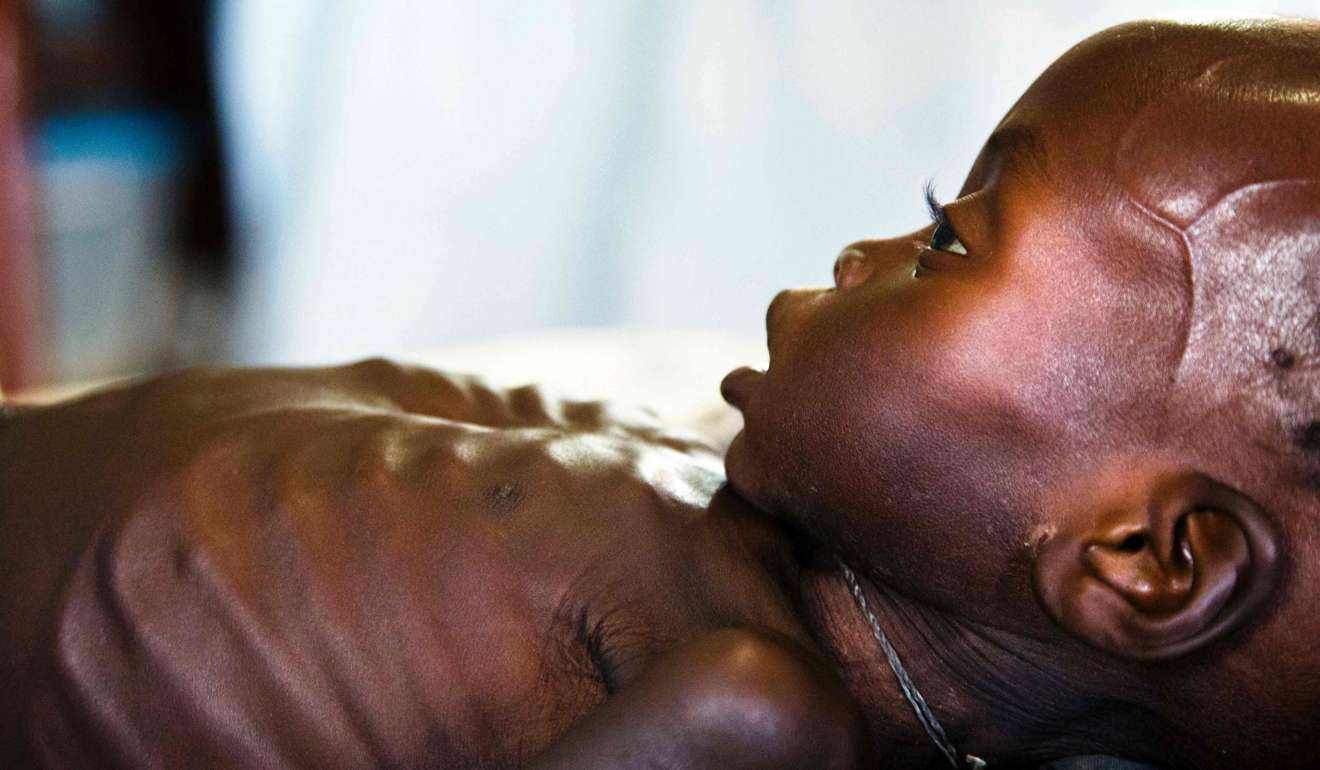
Famine is declared in South Sudan, as starvation stalks Nigeria, Yemen and Somalia, too
The South Sudanese government and humanitarian agencies have declared a famine in parts of the country, which has been devastated by three years of war.
The announcement comes as international aid agencies are overwhelmed by catastrophes unfolding in South Sudan and three other countries.
The United Nations Mission in the Republic of South Sudan said Monday that 100,000 people “are already starving” in the country. In some areas in Unity state, in the north of the country, more than 30 per cent of the population is suffering acute malnutrition.
UN humanitarian agencies warned that 275,000 children were at risk of starving to death unless there is a rapid increase in humanitarian aid.

“Famine has become a tragic reality in parts of South Sudan and our worst fears have been realised. Many families have exhausted every means they have to survive,” said Serge Tissot, the Food and Agriculture Organisation’s representative for South Sudan. Those affected “are predominantly farmers and war has disrupted agriculture. They’ve lost their livestock, even their farming tools. For months there has been a total reliance on whatever plants they can find and fish they can catch.”
After more than two decades of war, South Sudan won independence from Sudan in 2011 following a referendum. The world’s newest country, it relies on oil to survive, but inherited a shattered and neglected infrastructure. To make matters worse, billions of dollars went missing after independence because of rampant government corruption.
Famine has become a tragic reality in parts of South Sudan and our worst fears have been realised
Just 18 months after independence, South Sudan plunged into a civil war that has destroyed the trust among different ethnic groups and undermined the fragile government.
The declaration of the famine followed a report by the government and humanitarian agencies called the Integrated Food Security Phase Classification, which regularly examines several measures of famine, including mortality rates.
South Sudan’s National Bureau of Statistics chairman, Isaiah Chol Aruai, acknowledged the problem and called on the international community to scale up aid in coming months.
The US Famine Early Warning Systems Network recently warned of an “unprecedented” need for emergency food assistance globally, with four famines or threatened famines. There is famine in parts of Nigeria and South Sudan, and famine threatened in Somalia and Yemen.
Internationally, the need is staggering: 70 million people in 45 countries will need food aid this year, according to the US network.
The two worst crises – in Nigeria and South Sudan – are man-made, caused by fighting and insecurity. In other countries, such as Somalia, the worst drought in decades has led to successive crop failures and mass deaths of cows, goats, sheep and other animals.
Nearly 5 million South Sudanese, or 42 per cent of the population, are facing dire hunger or starvation, according to the Integrated Food Security report, and the number of people in crisis is expected to rise to at least 5.5 million by midyear, when South Sudan’s lean season sets in.
The conflict in South Sudan has seen people flee their homes and has cut trade routes with neighbouring countries such as Uganda and Kenya. Food prices have soared by 800 per cent, putting food out of the reach of impoverished families. Thousands of refugees have sought shelter in camps in Uganda.

